How a 19-Year-Old Girl from Kanpur Is Inspiring Women in Her Village to Go after Open Defecators
Palak Gaur, a 19-year-old resident of Kanpur has decided to improve the sanitation facilities in her village single-handedly. This is how she is doing it.
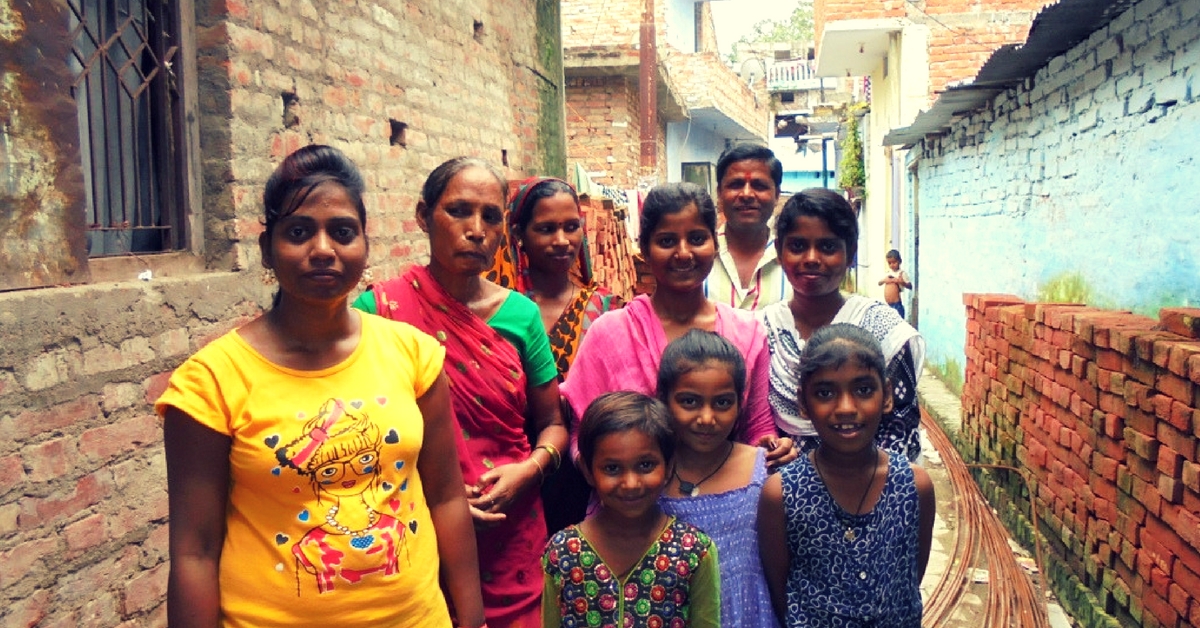
Palak Gaur, a 19-year-old resident of Kanpur has decided to improve the sanitation facilities in her village single-handedly. This is how she is doing it.
There’s no challenge that Palak Gaur finds insurmountable today. After all, the 19-year-old has spearheaded the clean-up of her ‘malin basti’, small neighbourhood of 45 homes tucked away in a larger slum located on Baba Ghat, flanking the Ganges in Kanpur, Uttar Pradesh. Last year in September, the youngster decided that she was no longer ‘okay’ with staying in a locality where rancid stench and heaps of rotting rubbish were such an intrinsic part of their everyday existence, that it didn’t even bother the residents anymore. So one day she started off by taking charge of clearing out a large garbage dumping area just outside her home. It took around six hours and more than 20 trips but she managed the job single-handedly.
Despite her fervent appeals to the elders in the vicinity, no one came to her assistance that day other than her younger sister Neeraj, who eventually joined in after finishing her chores, and a neighbour whose boundary wall was adjacent to the dump.
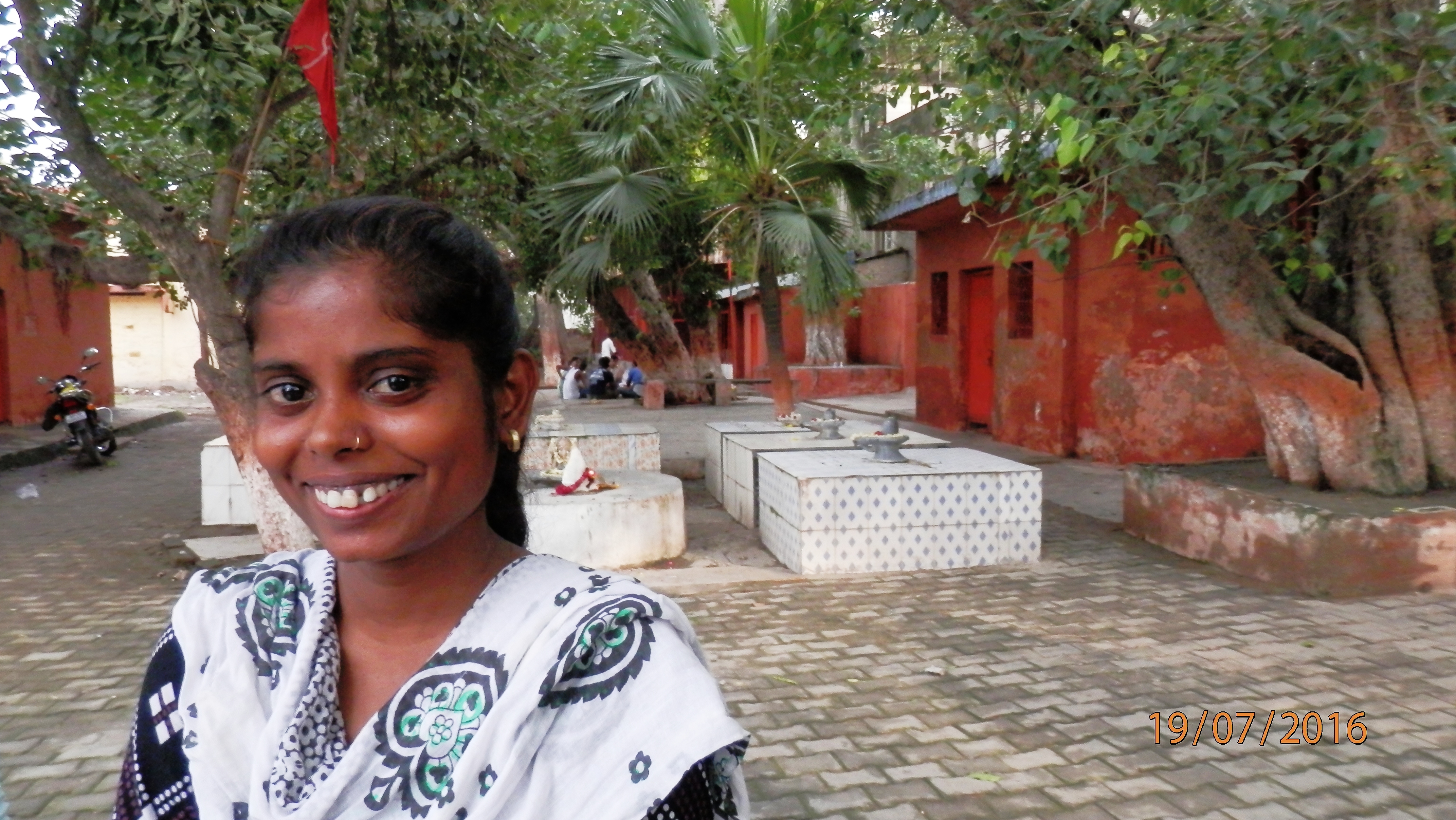
“When I told a few people what I had in mind, they called me crazy,” says Palak recalling the incident, “I simply told them that while I may be mad I was not mad enough to be living in such unhygienic surroundings. I started working at 7 am and was done by lunchtime. With a wicker basket I took the garbage bit by bit to the dumpster 200 meters away. After I cleaned the place up I warned everyone against throwing garbage there again.”
Palak is truly a committed young woman. Although her circumstances have not been the easiest, she has never shirked hard work. Her mother passed away when she was very young and ever since then her father, Mahaveer Gaur, a vegetable vendor, has been a single parent to her and her sisters. Naturally, making ends meet takes a lot of the time and energy, but Palak and Neeraj take out time from the housework and their studies to take extra classes for children in the area. “I am doing my masters in Hindi Literature and take tuitions as well. My father earns around Rs 3500 a month and my sister and I manage to make Rs 400 a month to help out,” she says.
You may also like: These Women Walk And Talk Non-Stop So They Can Improve Hygiene And Sanitation In Their Villages
Despite a packed day, Palak has consciously taken up the cause of clealiness because “it is directly connected to our health and wellbeing”.
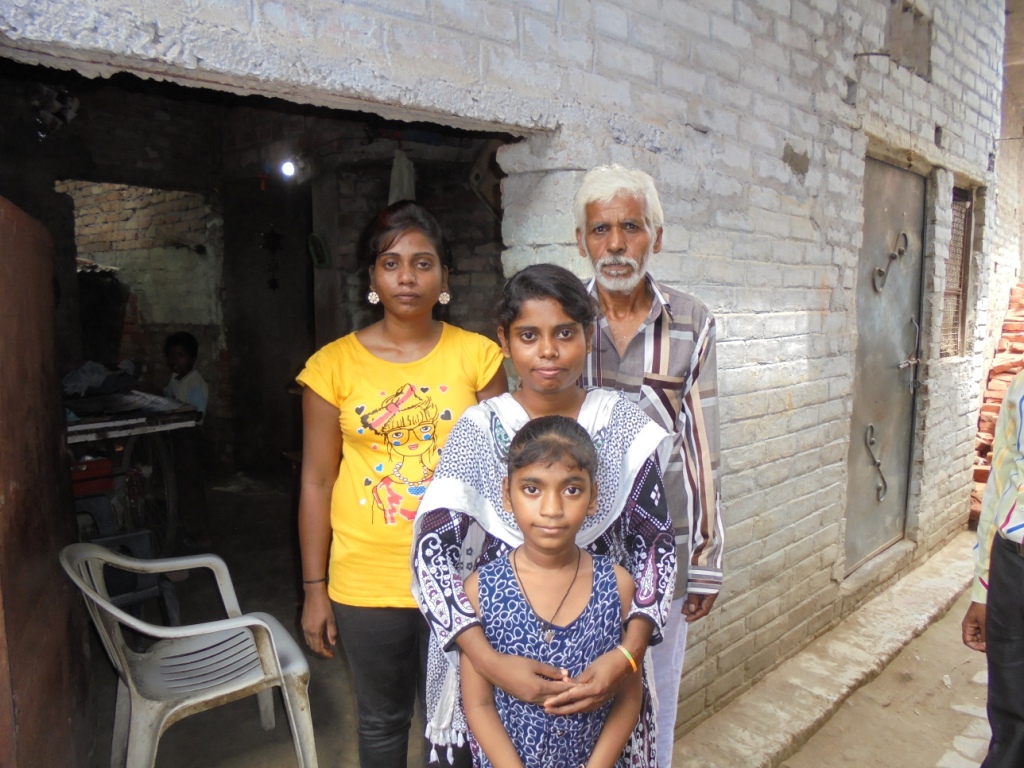
She was motivated to do this after she linked up with Shramik Bharti, a Kanpur-based a non-profit organisation, entirely by chance. “In May 2015 I happened to sit in on an awareness meeting organised in our ‘basti’. When I heard them out I realised that living in clean surroundings and ensuring proper sanitation is very important. I wanted to be part of their work and I attended another, more extensive, meeting at the organisation’s office in June.”
Shramik Bharti works on issues of poverty and women’s empowerment and has so far reached out to nearly a million people living within the slums and lower-income neighbourhoods, in and around Kanpur. Proper sanitation is critical to not just women’s health but also their safety, which is why the organisation has been focusing on motivating communities to take action. “We have been talking about concerns related to water, sanitation and hygiene with the support of WaterAid India, under the Central government’s Swachh Bharat Mission (SBM),” explains Rakesh Pandey, Chief Executive Officer, Shramik Bharti, adding, “Through interactive meetings we encourage people to take ownership of the cleanliness of their area. We have achieved remarkable results by developing leadership within the communities.”
One meeting transformed Palak from a quiet teenager to a young woman who was eager to bring change, whatever the cost.
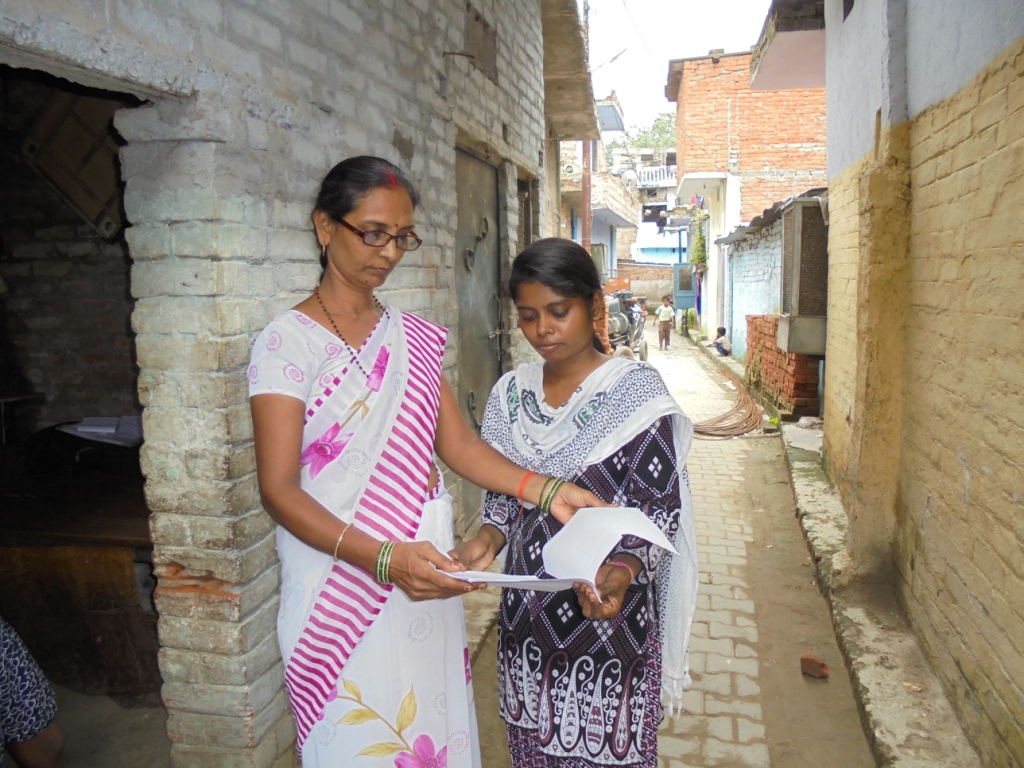
Even as she set the ball rolling by cleaning up the dumping ground outside her home – incidentally, her father was initially reluctant to allow his daughter to do this although eventually he was convinced that she was doing a “good work” – the youngster decided to rope in others to join in her mission. “I knew that changing the way we lived in ‘malin basti’ was not going to be possible for me alone,” she remarks. So she formed a ‘nigrani’ (vigilance) group of 25, comprising 10 youths (four girls and six boys in the 15 to 25 age group), 10 children (in the 8 to 14 years age group) and five adults (two men and three women) “for guidance and support”. The committee is diligently working towards “stopping people from defecating in the open, by shaming, threatening, or warning them, whatever works”.
“We did try to convince people to use toilets, whether at home or a public facility, explaining to them how open defection pollutes the environment and the water. But when that didn’t work we decided to take some drastic measures. A bunch of us wake up at 4 am and hide behind trees in the locality .We even patrol a nearly four-kilometre stretch of the river bank where many slum dwellers go to relieve themselves. Those who were reluctant to mend their ways have been photographed and warned of a penalty slapped by government authorities, which has helped in curtailing this menace,” reveals Palak.
As people no longer found it easy to go for ablutions in the open, they were suddenly keen to find out how they could build a toilet at home.
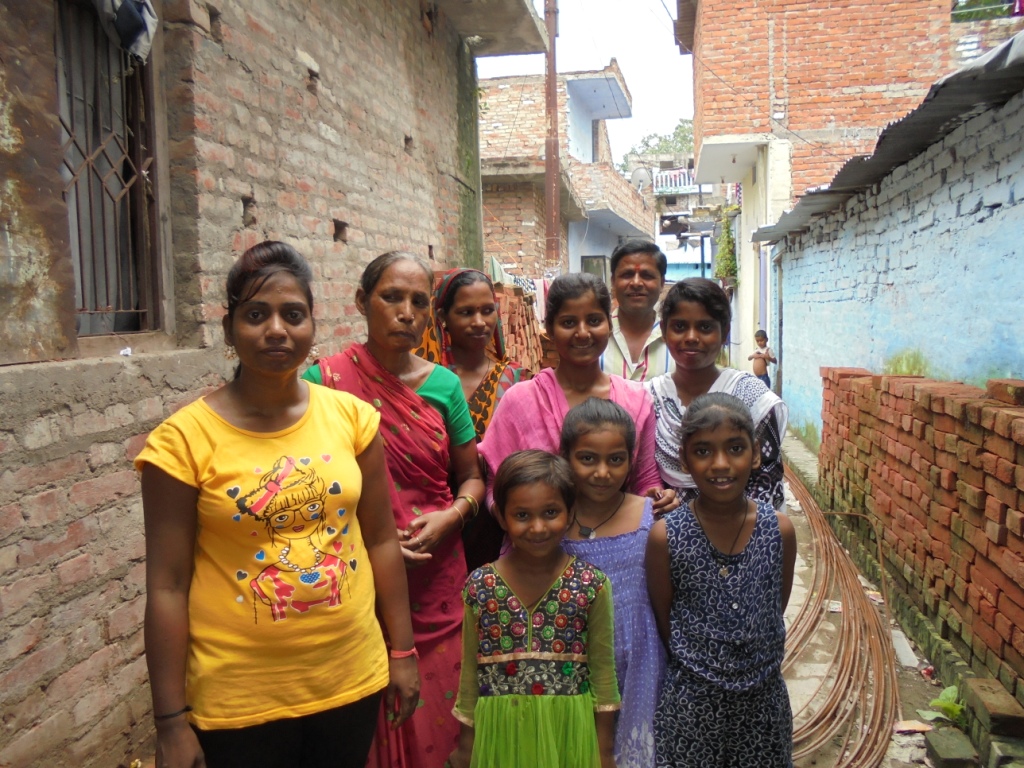
Palak jumped in to help them out by telling them about their entitlements under the government’s sanitation programme. Under the SBM, a sum of Rs 8,000 is sanctioned for poor families to construct a toilet. The grant comes in three installments; the final payment is released only after the beneficiary can prove that they have a working toilet.
It took her around three months but she visited each of the 45 families to egg them on to apply for constructing a toilet.
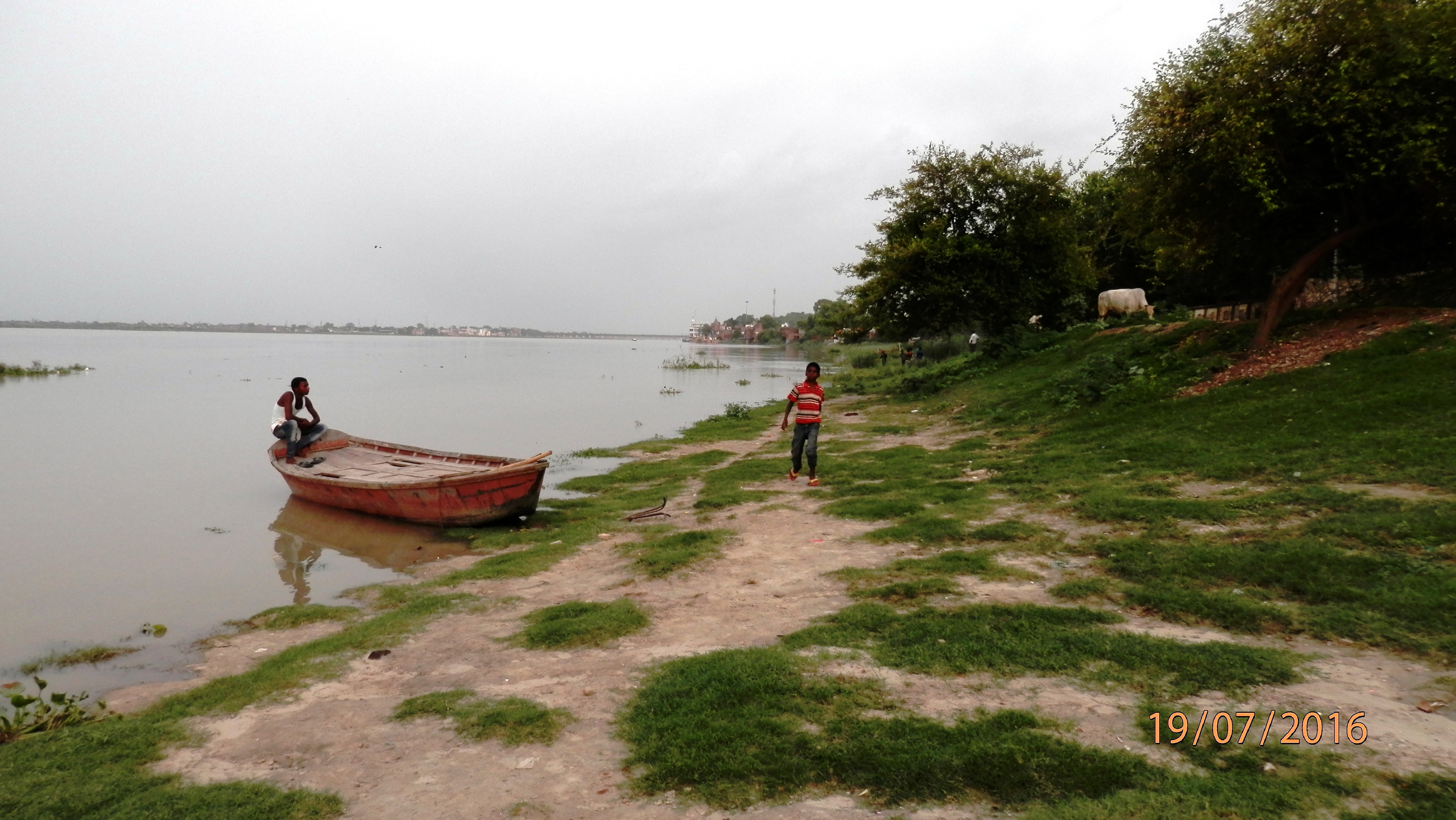
“There were many who still slammed the door on my face. It was annoyed but I kept calm,” says Palak, whose father had shown some great forward thinking by getting a toilet constructed for his daughters 12 years back. Her patience did pay off as she has managed to get all the families to fill out the relevant forms, which she handed over to Shramik Bharti to be passed on to the municipal authorities. Consequently, there are working toilets in several homes while others are in the process of getting one built.
You may also like: Whistling Can Be Used To Improve Sanitation? Yes! These Village Women Show You How.
Her proactive approach has caught the attention of the district officials as well as the municipal corporation, with which she interacts regularly. In fact, local corporator Namita Kanojia has nominated Palak to be on the ward committee, too. Two significant positive outcomes of this have been the sanctioning of the construction of a half built sewage line as well as a 10-seat community toilet.
The sewage line, in particular, is a coup. Palak put a proposal for the same before the MLA Salil Vishnoi on March 22, 2016, and later to the District Magistrate Kaushal Raj Sharma on June 25. The project has been approved and construction is slated to begin after monsoon.
Palak’s work doesn’t stop with her; her leadership has catalysed others to do their bit. For Divya, who studies in Class Two and is on the basti’s vigilance committee, Palak is a true heroine. “I understand that what she has asked us to do is beneficial for everyone and that’s why I follow her lead. We shoo those who want to defecate near the river bank. Nowadays no one defies us,” she says proudly. Though she dreams of completing her B.Ed and take up teaching she will “pursue my mission to make people aware of the importance of hygiene and sanitation. I want to convert this ‘malin basti’ into a ‘model basti’, which is open defecation free.”
Like this story? Or have something to share? Write to us: [email protected], or connect with us on Facebook and Twitter (@thebetterindia).
This story made me
- 97
- 121
- 89
- 167
Tell Us More
We bring stories straight from the heart of India, to inspire millions and create a wave of impact. Our positive movement is growing bigger everyday, and we would love for you to join it.
Please contribute whatever you can, every little penny helps our team in bringing you more stories that support dreams and spread hope.



















